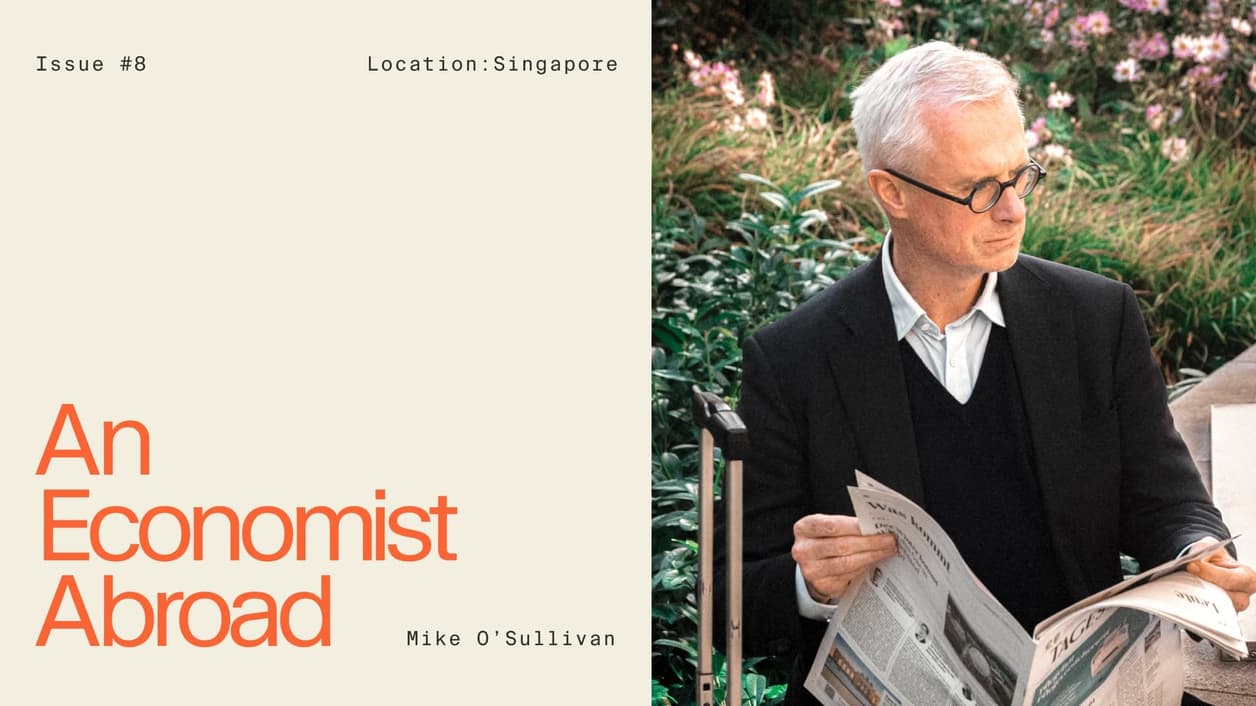
The financial industry is poised for the largest end-of-year bonus boost since the Great Recession more than ten years ago.
The busy and profitable 2021 could translate into payouts that are up to 35% higher than last year, according to pay consultancy firm Johnson Associates.
Investment bankers and equity traders on Wall Street can expect to enjoy the biggest increases but a bonus bonanza, albeit a bit more modest, has turned up in other global financial hubs as well. The largest German banking institution, for instance, is set for a 15% bonus bump.
Individual bonuses can range from a few thousand up to tens of millions. For early-stage associates, they are typically paid out all in cash, but as bankers and fund managers climb the corporate ladder a larger percentage may turn into options and shares - or the “magic beans” as they are known.
Where does bonus money go?
While bonuses are ardently tracked there isn’t clear data on where the money goes.
Generally speaking, the top 20% of spenders prefer to shop for real estate, education, entertainment, pension insurance or they give money away, according to data from the US Bureau of Labor Statistics’ Consumer Expenditure Survey.
Online discussions reveal that financial professionals also tend to invest their bonuses into stock markets, pay down debt, save it in cash or splurge on gifts and vacation.
In any case, behavioural psychologists will tell you that the spending preferences largely depend on how you perceive your bonus. Studies show that people tend to be more long-term oriented with money they see as reimbursement for hard work - in comparison to framing payout as jackpot money, which more often leads to splashing out.
With that in mind, here are some ways in which people traditionally invest their bonus.

Save for retirement
Experts say that traditional pension savings might not be enough to fund your golden years given that pensions schemes track public market returns. This is even truer today as overall yields are quite muted.
For these reasons, it’s a good idea to consider alternate (private) funding, especially if you prefer a more flexible approach to saving for retirement. These options often offer tax benefits, at least to a certain income level.
A substantial, guaranteed check coming in every month for the rest of your life will probably make you happier. Studies show you may live longerbecause of it, too.
Finance long-term goals
You could also direct the bonus towards financing long-term plans.
Many people want to build their own business, for example. Launching a venture is expensive and as entrepreneurs bootstrap through the first few years, having enough money to set up the proper foundation is critical for success. It’s not unusual that people invest six figures of their own money to get the company off the ground.
Buying property or setting up a trust fund for your children are also good ways to spend your bonus and jump-start these goals.
To finance them with even larger sums, you may want to consider investing the bonus into assets that match your longer-term horizon and offer outsized wealth creation.
Private equity (PE) can work well for investors who intend to maintain long-term exposure. While PE funds typically have a 10-year lifespan, the profit distribution starts at around five years after committing capital, which can be considered an upside if you are able to lock in capital and reap potentially higher returns after some time. Historically, PE has outperformed public markets ¹ . Note that past performance is not indicative of future performance and investments into PE funds are inherently risky.
Treat yourself
Splurging on nice things is great but it doesn’t have to be void of all rumination. Speaking from a happiness perspective, spending on experiences will bring more joy than buying possessions, science tells us. A good way to maximize the happiness of spending the bonus is to finally go for the vacation you’ve been dreaming of for ages. Extra points if you bring family or a friend along.
Gifts are of course also a nice treat, but a gift that keeps on giving is even better. Create an additional source of cash flow by buying yourself things that may appreciate in value. Here are some of our favourites:
Watches - In best cases, the right watch can double in value (although 10-30% appreciation is more likely). The emphasis is on the “right watch” - only a few of the most special, rare or luxurious pieces will accrue value. But even if the price after purchase doesn’t shoot up, you’ll still own a nice, probably Swiss-made, timepiece to flaunt yourself with.
Art - If you find joy in that dreamy painting, there are few finer things you can reward yourself with than art. Besides making walls look good, art can offer some nice profits, too. Contemporary art, especially, provided an annual return of 13,6% over the last 25 years, as of December 2021, according to the Citi Global Art Market chart. Experts suggest sticking to pieces by well-known artists with certificates of authenticity.
Wine - Only the finest bottles from established winemakers in the best regions have the potential to increase in value. In some cases, an exceptional vintage can lift all boats, including the specimens with a less prestigious history. The value of fine wine rose 13% in 2020, according to the latest wealth report from consultancy Knight Frank. But even if that expensive bottle doesn’t appreciate in value, you can still rely on it to appreciate (as in lift) your spirits once empty.
Pay off costly debt
Bonus money can be a great opportunity to pay off, entirely or in part, any high-interest debt. Common financial wisdom dictates to knock-off debt that commands an interest rate higher than what you could earn on that money elsewhere.
Paying off debt prematurely with a little help from the bonus has other benefits - it can improve your credit score, making it easier to borrow money for future projects.
After taking care of debt, it’s always a good idea to allocate some of the bonus to an emergency fund. A good savings buffer can help offset unforeseen expenses. They say that an emergency fund should meet at least six months of living expenses for a stress-free lifestyle.

Invest in education
One thing most successful people have in common is that they constantly exercise their brains. You could direct a part of the bonus into something that can pay dividends forever - new skills, productivity gadgets or hobbies. Search for professional organizations you can join or conferences that you would like to attend.
Donate
Finally, if you can, try giving some of the bonus to a cause that you believe in. Besides helping others, donating will make you feel good about yourself.
When researchers assess happiness before and after people spend an annual bonus, “people report greater happiness when they spend the money on others or donate it to charity than when they spend it on themselves”, according to a University of Nebraska-Lincoln researcher. Not to mention the tax benefits ...
But before you start giving, it’s a smart idea to first do your due diligence. GiveWell and Charity Navigator, for example, are two platforms that can help you find the best charities across different categories.
If you are interested in the exciting world of private markets, create your Moonfare account in a few minutes.


¹ Based on CA US Private Equity (PE) Index as sourced by Cambridge Associates’ Q4 2020 “Index and Selected Benchmark Statistics” report. The Cambridge Associates Private Equity Index is a pooled horizon IRR calculation based on quarterly data compiled from over 8,300 private equity funds, including fully liquidated partnerships, formed between 1986 and 2020. It is not an investable index. S&P 500 Total Return Index as sourced from Yahoo Finance.



